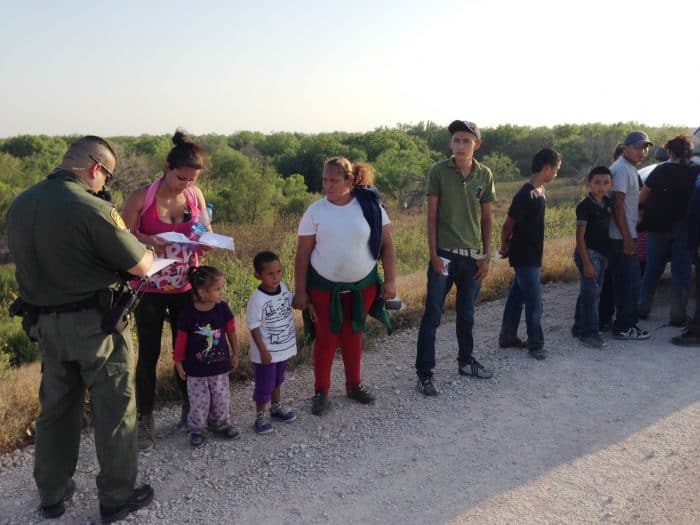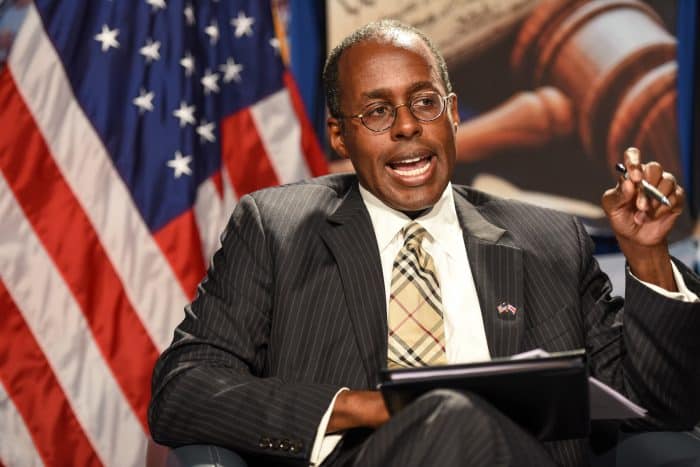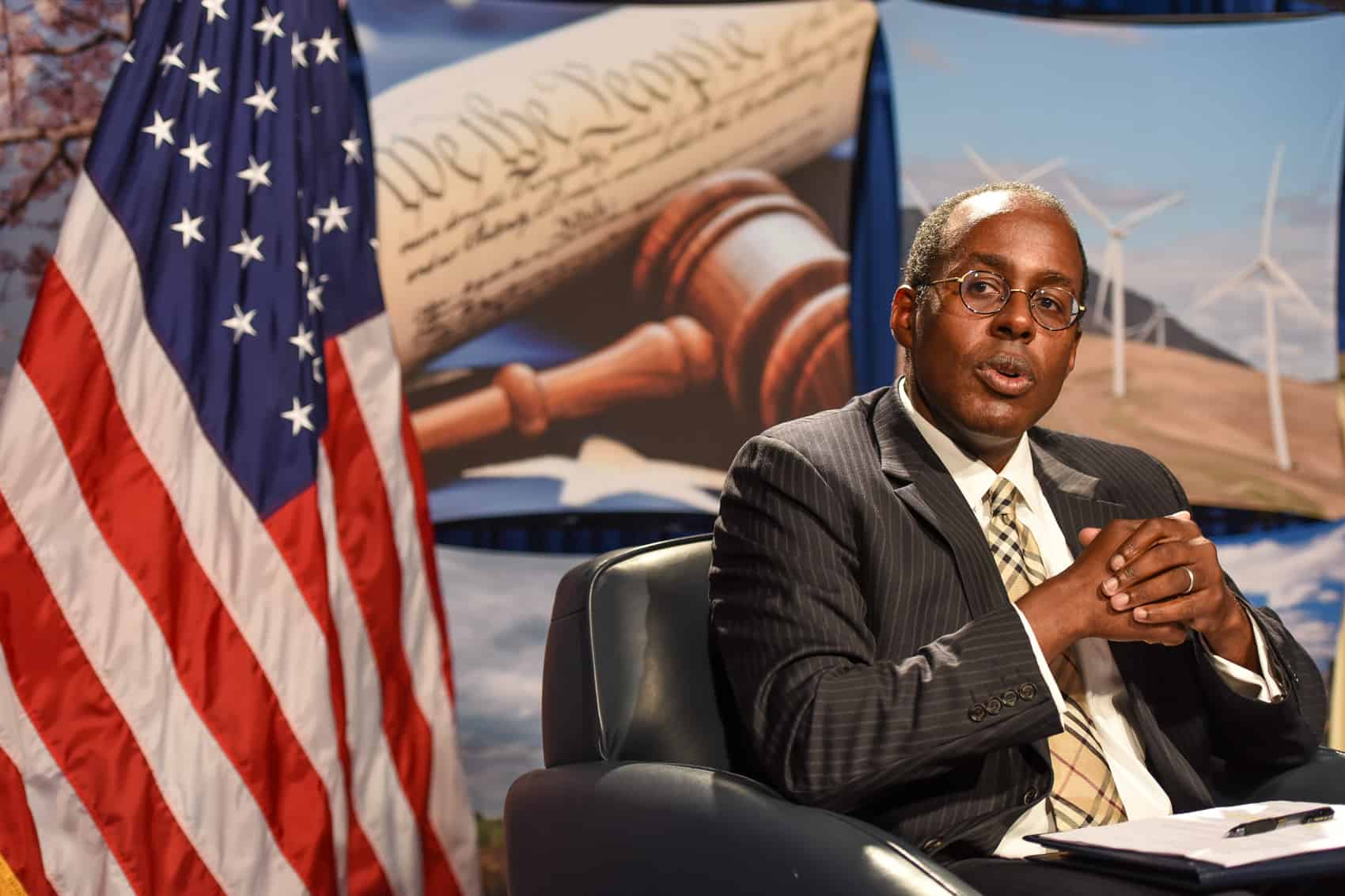It took exactly one year between the day U.S. Ambassador Stafford Fitzgerald Haney was nominated in July, 2014 and the day he presented his credentials to Costa Rican President Luis Guillermo Solís. Haney’s arrival marked the end of a two-year absence of a U.S. ambassador in Costa Rica after former Ambassador Anne S. Andrew stepped down in 2013.
The Tico Times sat down with Haney at the U.S. Embassy in San José last week to hear his thoughts on U.S. foreign investment, foreign policy, Costa Rica’s leadership role in the region, and the possibility of medical marijuana legalization here.
A Nashville, Tennessee native, Haney grew up outside Chicago in Naperville, Illinois. He and his wife Andrea Haney lived in Englewood, New Jersey, with their four children before moving to Costa Rica in July. Haney has worked in Mexico, Brazil, Israel and Puerto Rico during his career, among other places.
Most recently, Haney was a principal and director of business development and client services for Europe, Middle East and Africa at Pzena Investment Management in New York City. He held the position since 2007.
This interview has been edited for brevity and clarity.
TT: Why did you say yes to President Obama’s offer to become U.S. ambassador to Costa Rica?
SFH: When you get the call from the White House asking if you want to represent the president as his or her personal representative abroad you take the call. Then you take a deep breath and ask where? [laughs] Because it could be lots of different countries. When I heard Costa Rica it was a no-brainer for me. I felt very honored and humbled to be asked to represent the president and in a country that is such a strong ally of ours.

How do you think working in a country with a large U.S. population changes the job as ambassador?
The No. 1 job of an ambassador and of the U.S. embassy in general is to protect American interests and citizens. The fact that we have a sizeable population that has decided for all the right reasons to move and live in Costa Rica, as well as a million visitors from United States annually, highlights that that’s one of our main purposes.
How do you see the current role of the United States in Central America and Costa Rica in particular?
I feel like I’m very lucky to get to be a diplomat at this time in United States involvement in the hemisphere and Central America. I think it’s a positive inflection point for us. Part of it has been driven by our push with NAFTA [North American Free Trade Agreement] and then CAFTA [Central American Free Trade Agreement] and other free trade agreements being negotiated. The fact that President Obama requested $1 billion to re-engage in Central America and to really think about the core issues that the region is facing is a strong positive. I think we play a constructive role in the region. It hasn’t always been the case but it definitely is where we are today.
Speaking of the $1 billion requested, the Congressional Research Service has said that its unclear what the Central America Regional Security Initiative (CARSI) has accomplished in the region. How do you think this additional $1 billion would be used?
Specifically, in Costa Rica, it’s been a great success story. We’ve worked with the Costa Ricans to develop a strategy that has had great results. If you look over the past four years, from the counter-narcotics side, I believe there was 26 tons of cocaine interdicted and that was the most of any country in Central America. CARSI has been a resounding success locally. [The final tally from the Public Security Ministry in December 2014 was 21 metric tons of cocaine.]
I think from a regional standpoint it’s also been successful. These are endemic and difficult issues. Look at Plan Colombia. Plan Colombia was over a decade and about $2 billion. It takes a huge investment to try to address some of the core issue.
We’ve realized that we can’t just address the symptoms of narco-trafficking and organized crime in the region. There are other issues we have to start to work on and those aren’t going to be solved over night. A lot of that is training and capacitation, democracy- and institution-building, and some of that is USAID money as well. It runs the gamut because it has to be a holistic approach, it can’t just be targeted on security.
I would rarely lead with security because the relationship we have with Costa Rica is much broader than that. Having said that, without security you have nothing so it has to be a fundamental base. That’s the thinking we have government-wide that citizen security is paramount to be able to go about the prosperity that we want to drive toward.

Much of the $1 billion is designed to stem the flow of migrants from Northern Triangle countries. What role can Costa Rica play in trying to resolve that phenomenon.
Costa Rica is a destination. Not as much as the United States, obviously, but it is one of the areas that we definitely need to coordinate with the government of Costa Rica, because as we become more successful stemming the flow north, if a parent is that desperate to send their child on a trip like that, they could also send them south.
One of the key issues talking about Central America is the feeling of impunity and the lack of democratic institutions. Costa Rica, because it’s been the most successful in the region from a democracy- and institution-building standpoint, has a significant role to play in capacitation and training: how they’ve been able to build civil society and democratic institutions, talking about the professionalization of the police force and border patrol. We would hope and expect that the Ticos are going to help us lead in this effort.
It’s like any neighborhood: the more secure the neighbors around you are, the better for you as well. Helping Costa Rica to lead on the efforts to address some of the endemic issues in the north will also positively affect Costa Rica going forward.
What grade would you give the Central American Free Trade Agreement (CAFTA) when it comes to delivering on its promises of investment in Costa Rica and improving the flow of trade between Central American countries?
I think CAFTA in general has done extremely well. Bilateral trade between Costa Rica and the United States has been phenomenal. For the Costa Rican people, the opening of the telecommunication and insurance industries have driven home some of the benefits of what free trade can bring. I think without a doubt there is additional opportunity to broaden and deepen the benefits of CAFTA between Costa Rica and the United States and other countries in the region.
If you look at intra-regional trade between Costa Rica and other countries in the region, the increase is almost negligible. It hasn’t delivered on the promise of intra-regional trade yet, but I also see that as an opportunity. Some of the medium and smaller enterprises could probably benefit more from intra-regional trade, those that might not be able to access bilateral trade to the U.S. Obviously, the larger businesses and corporations have done extremely well, but if you have a small or medium-sized business you may be better positioned to trade with a Guatemala or El Salvador than you would directly with the United States. There’s still work to be done on CAFTA without a doubt.
Why is intra-regional trade so minimal?
It boggles my mind but it’s cheaper to get a truck from San Francisco to D.C. than it is from San José to San Salvador where the distance is a lot shorter. There’s no reason why that should be the case. There’s no reason why a business in Central America is facing 40 percent of its costs in logistics. Everyone talks about energy costs — and they are expensive and we need to talk about those, as well — but when 40 percent of your costs are chewed up in logistics, that tells you something about the challenges you’re facing in trade.
Some of it is historic and the dynamic within the region but we have to move past that because the world has moved on. The world is a lot more competitive so the region either decides it’s going to move forward or it’s going to be left behind.

Costa Rica saw a dip in foreign investment last year. How can the U.S. Embassy in San José help U.S. companies set up here?
When I came to Costa Rica 20 years ago I was covering it from a marketing and sales standpoint and I spent a lot of time here versus other countries in the region for a reason: This is where it was most likely to be able to do business. I don’t think that’s changed. Some countries, especially Panama, have moved rapidly up. But the key benefit you see here is the human resource pool.
The human capital Costa Rica has been able to build over three generations. This is investment ever since they decided they weren’t going to invest in defense but in social programs. They’re reaping the benefits of that investment now with a talented pool of university and beyond level people that is unmatched within Central America. And it’s not just wage arbitration, it’s that the efficiency is so great because they’ve been able to capture and harness this great talent.
The challenges aren’t a secret, it’s a question of how we do something about them. For Costa Rica to maintain its competitiveness, it’s going to have to address energy costs, infrastructure; these aren’t new issues. Bureaucracy, protection of intellectual property rights: These are things that the business community will tell you time and time again. It’s going to get to the point where Costa Rica is going to have to make the hard choices if it wants to maintain its leading role.
Human talent in Costa Rica is strong for the region, but high school graduation rates in Costa Rica are still only at 46 percent. It seems that there’s a greater demand for qualified workers than are available here.
I think it’s two-fold. It’s something that the United States has struggled with as well, and you’ve seen a huge push in the last decade on community college and technical schools. High school graduation rates should be higher, without a doubt. But what do people do after high school? How do you prepare them to be productive members of society? A four-year degree might not be right for everybody. We found that out in the United States and frankly, we were behind a country like Germany that, a generation ago, said it would invest in its technical schools. Even in the United States we’re struggling with this and Costa Rica is in the same boat.
U.S. companies I’ve met with said that there’s a flexibility here that’s rare to find. Here’s an example I’ve heard. Lots of companies wanted to send their tax and shared financial services here. But they use U.S. GAAP (Generally Accepted Accounting Principles) accounting and Costa Rica wasn’t teaching GAAP accounting. These firms went to the universities and said, you have the raw talent but we need the special skill set that would help us in U.S. GAAP accounting. So some universities said there’s no reason we can’t be teaching Costa Rican accounting and U.S. GAAP accounting, as well. That helped provide the needed talent pool, that kind of collaboration between the private sector and education sector. And the government has a role to play in how educational resources are used. I’m going to challenge the business sector to put some money up for that, too, because it can’t all be the government.

Many U.S. states have legalized medical marijuana and some have legalized recreational marijuana use. Costa Rica is considering a bill that would legalize medical marijuana here. If Costa Rica were to pass a medical marijuana bill, how would that affect its relationship with the United States?
Obviously, the Costa Ricans’ decision of what they want to do with their own laws is up to Costa Rica. Uruguay has legalized marijuana. That’s going to be a local issue just as it is in the States, if it’s Colorado or D.C. The federal government has a position and it’s not going to change. I think as far as our relationship with Costa Rica, regardless of whatever steps it ends up taking, we’re going to continue supporting the programs that make the most sense. We have a broad relationship beyond CARSI. We also teach English; there are 130 Peace Corps volunteers here.
But Central America is a lot closer than Uruguay is to the United States.
But Colorado is even closer. It’s a situation where the federal government in the United States is dealing with that on a local basis and if it were to happen here — as a hypothetical — we would deal with it here as well. I can’t go further than that because it’s a hypothetical, but if we can deal with it domestically, we can deal with it internationally.
That seems to be a softening of a position that, in recent years, has been pretty solidly, “Don’t do that.”
Our preference, the preference of the federal government, is not to do that. That hasn’t stopped certain states in the United States from doing something different and each country has to decide what’s best for its country.
What will you miss the most from the United States while you’re here?
Having lived aboard for the majority of my life and just coming back from living abroad in another country, the fact that we are very close to home and that we can get almost everything we could get at home here is a huge improvement over where we happened to be before. The easy and truthful answer, whenever we go abroad, is family. We’re a small family and we have very young kids and they love their cousins. That’s always the hardest thing. Other than that, it’s an adventure.
For me it’s affordable peanut butter.






